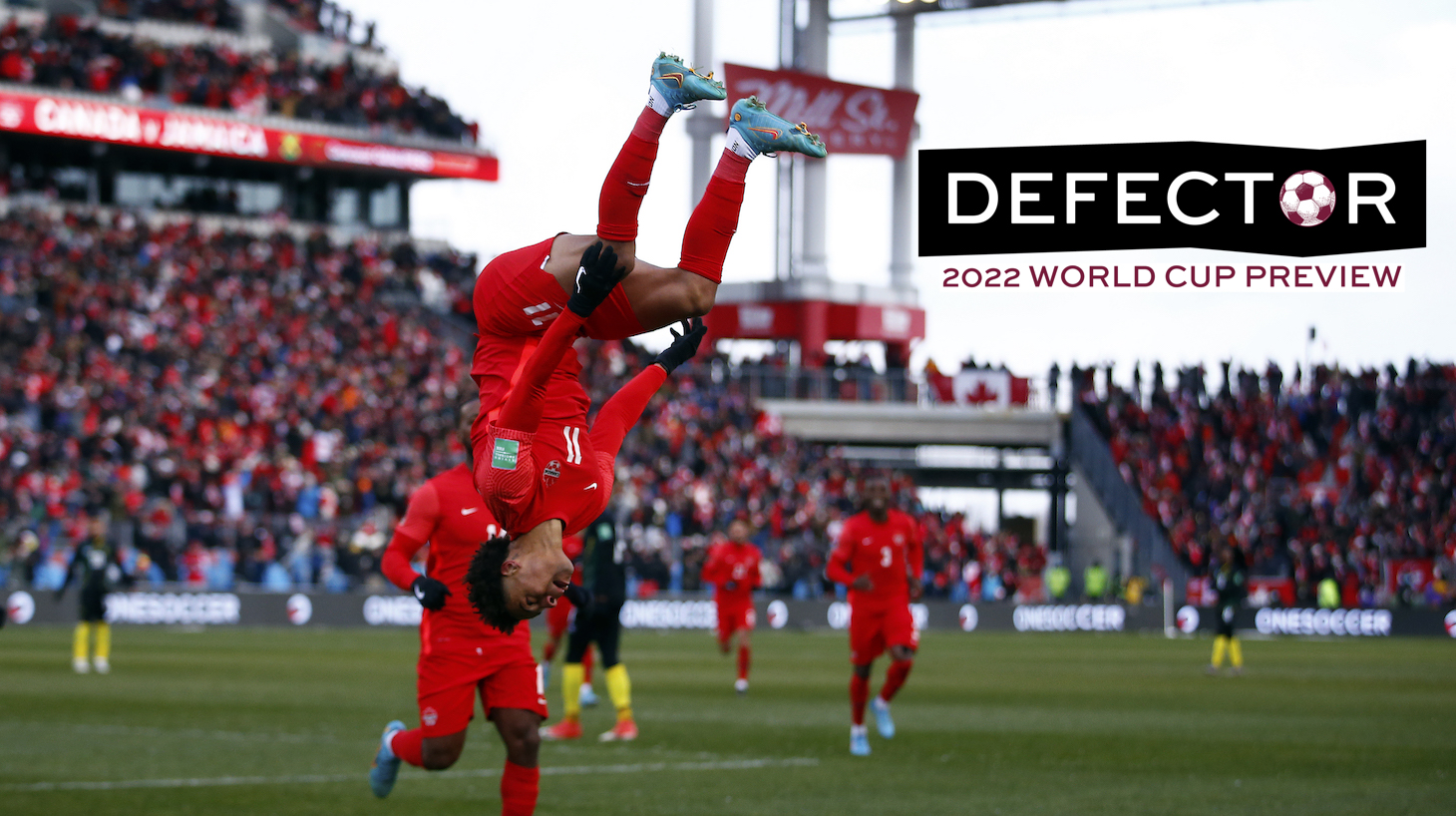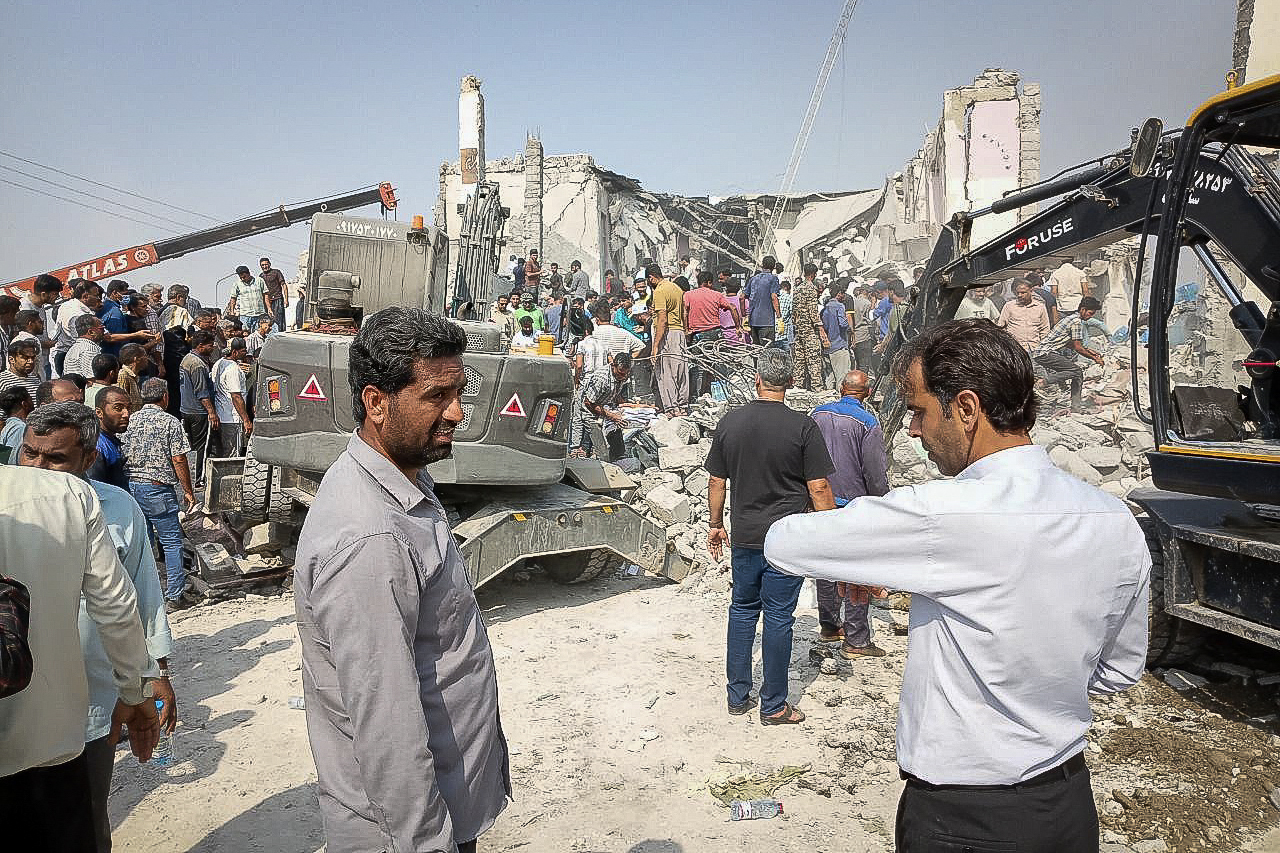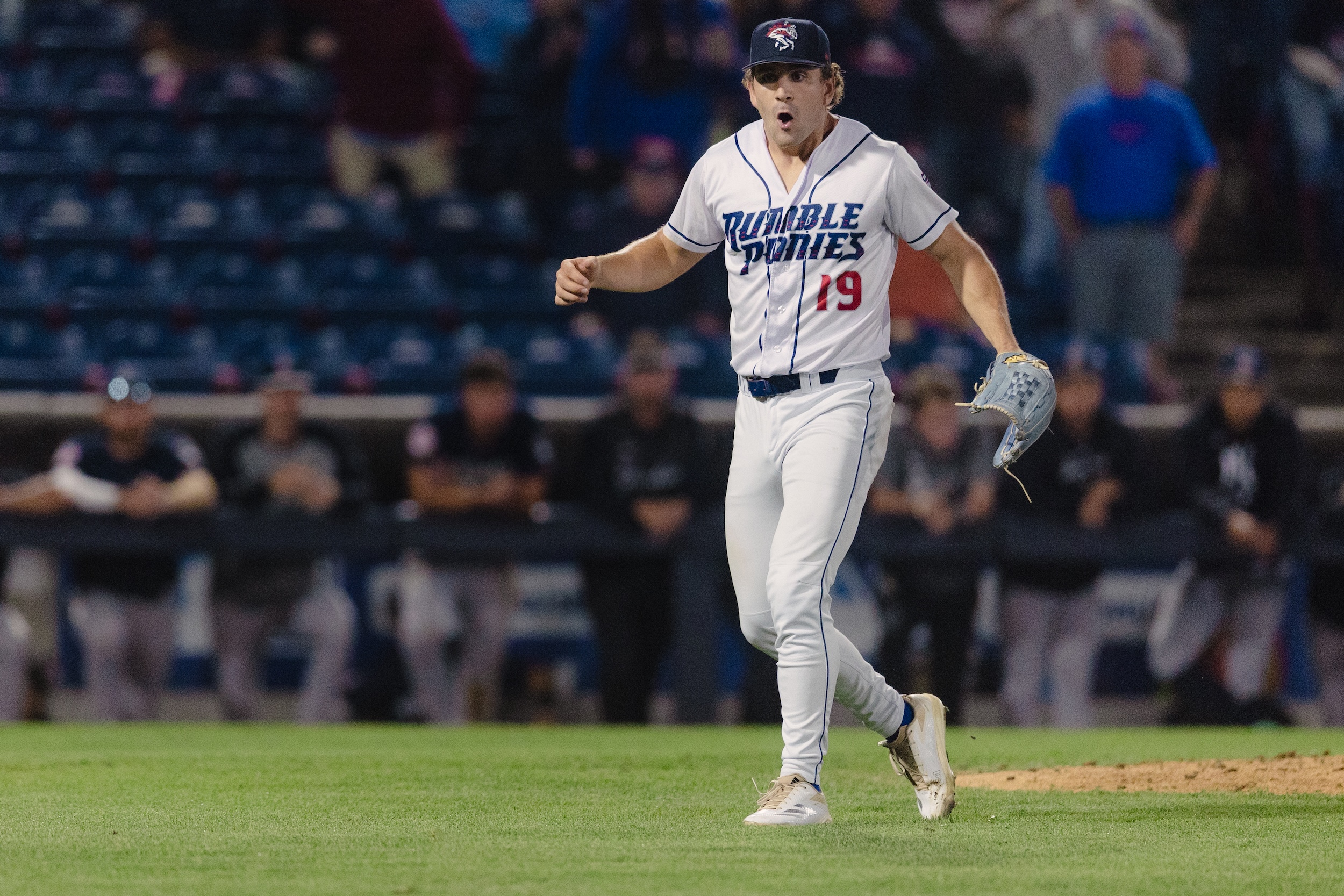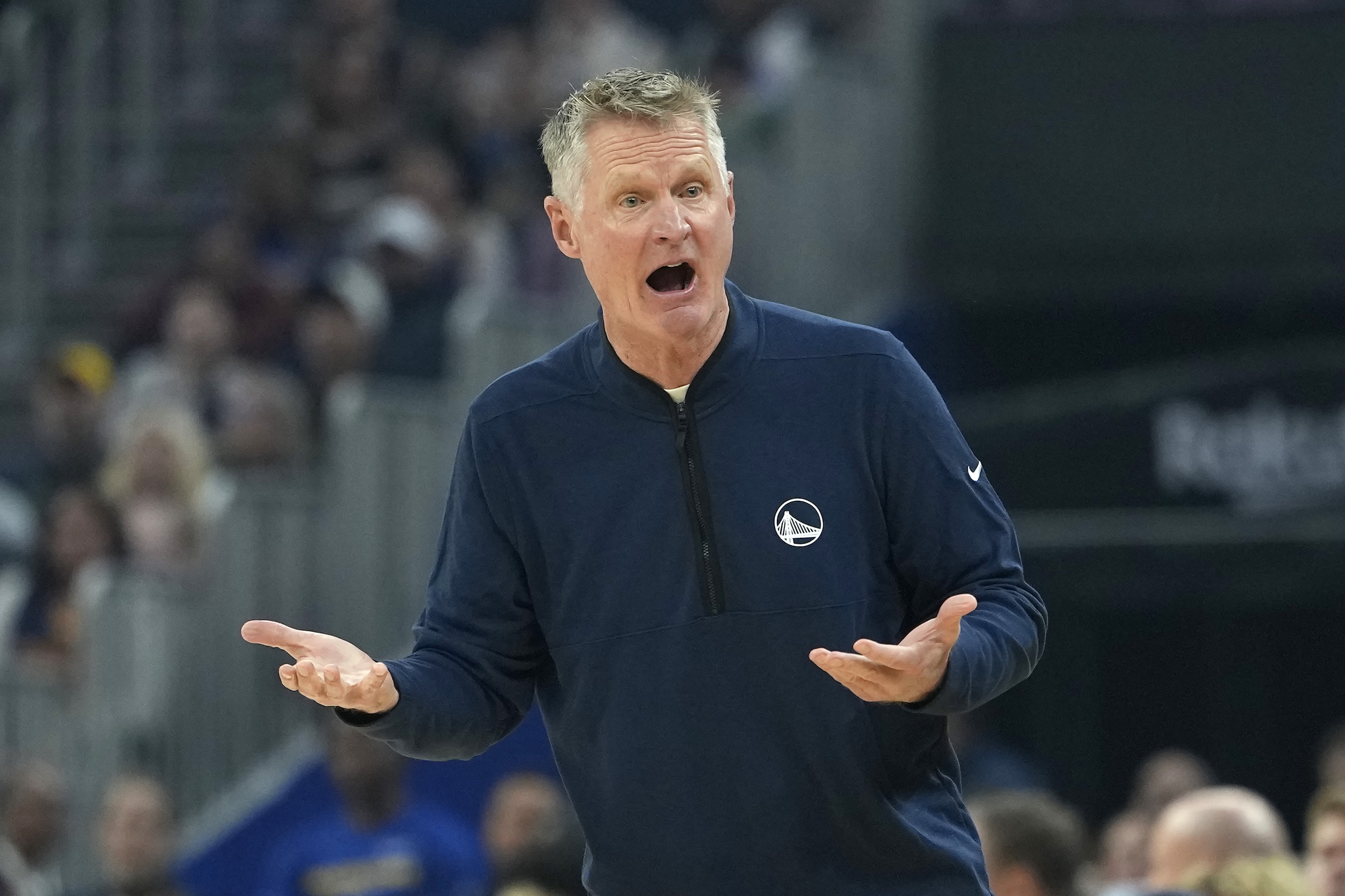It’s almost time for the 2022 World Cup. To help get you ready, we will be providing you with precious information about every team in the tournament. You can read all of our World Cup previews here.
There are several ways to illustrate how remarkable it is that Canada is finally back in the World Cup, with momentum: The last time Canada made the World Cup, Pierre Trudeau had only just stopped being prime minister. Now, in 2022, Pierre Trudeau's son Justin has been PM for seven years; Canada is tied for the fewest World Cup goals out of all the nations in the tournament, and that includes the hosts, who have never before played in a World Cup; Canada hadn't even made the final qualifying round in CONCACAF since 1998 (they finished last) until they won it last year, making their second-ever World Cup and first since 1986. Whatever they do in Qatar will necessarily be history-making, since they lost all three games in 1986 without even scoring a goal.
Canada is in the midst of a real soccer explosion. Their Main Guy and Main Scoring Guy are both stars for Champions League clubs, and the rest of the roster is replete with cool, young guys. If this sounds a lot like the USMNT's trajectory, well, it should. Both teams have benefitted greatly from their MLS clubs developing real academies, just as both have benefitted from their country's geopolitical positions. Canada is in a really tough group this time around, with both the second- and third-placed finishers from the 2018 World Cup in their group, along with Morocco. They are probably not expected to escape, though they are built to surprise. They are scrappy, they don't fear a thing, and they have a couple of top-tier gamebreakers. I should also stress here that they will be fun, win or lose.
Who Is Their Main Guy?
Canada's main guy is Alphonso Davies, who at Bayern Munich has blossomed into one of the very best left backs in the world. Davies is in the Zinchenkian mold of players who play a more advanced or central position for their relatively middling national team than they do for their prestigious clubs. Though Canada uses him in midfield and attack, where he began his career with the Vancouver Whitecaps, Bayern has the luxury of keeping Davies along their backline, using his world-class speed to both put out fires and start them. That has worked out tremendously for the Germans, as he is maybe the single most physically gifted fullback in the world. He's good at everything—as a former winger, Davies is a spectacular dribbler—and he's also an extremely cool and fun guy. My favorite Davies highlights are his recoveries, when an attacker thinks they have the space to do something with the ball, only for Davies to appear out of thin air to get their ass.
Davies is also easy to root for. He was born to Liberian refugee parents at a camp in Ghana, and relocated to Edmonton when he was five. He joined the Vancouver academy a decade later, quickly progressing up to the first team then off to Bayern. By 20, he had started in and won a Champions League final, completing an incredible journey. That journey continues with Canada's first World Cup in forever, which is hosted by a country with a horrific record of abusing migrant labor. Davies's life story obviously is not the same as the Bengali, Filipino, and Nepalese workers who have died building stadiums in Doha, though it certainly rhymes. It would rule pretty hard if he got to have a big-time Moment at this particular tournament.
Who Is Their Main Scoring Guy?
For a guy who has spent most of his career playing every position except for striker, Johnathan David has a pretty incredible goalscoring record. David is the type of player every team in the world could use one or two of. His best position is as a Griezmann-esque second striker/playmaker hybrid, though he has put in excellent performances for Canada, Lille, and Gent at winger, striker, and No. 10. As a USMNT fan, watching David play in the same attack as Tim Weah, his teammate at Lille, can occasionally be a brutal experience, as the talent disparity between the two is made clear every time out. David is a bad, bad man.
The numbers speak for themselves: 22 goals in 34 games for Canada and 37 in 89 for Lille (with three goals in Europe to boot). Lille bought him ahead of the 2020–21 season, played him in every game but one, and won the league over PSG. He'd be the James Rodríguez candidate for this team if it weren't so obvious: he's going places, soon, and he won't need a big-time World Cup performance to get there. Like Davies, David's journey to Canada was circuitous. He was actually born in Brooklyn (like Weah, who, coincidentally is also Liberian-North American, though his dad is the president and Davies was a refugee, so there are some pretty huge differences there), then moved to Haiti before moving to Canada. He rules! Canada has too many cool guys!
Where's The Beef?
Which teams or players does Canada not like? Do Canada's players like each other? We investigate their potential enemies.
Canada hosted the USMNT on Jan. 30, in Hamilton, Ontario, and put forth their statement game of the whole World Cup qualification campaign. In unforgiving, punishingly cold conditions, the Canadians withstood a furious American attack, resisted every advance, counterattacked with bravery and panache, and won 2–0, guaranteeing World Cup qualification and winning their two games against their southern neighbors by 4–0. That's a huge statement. Canada is America's shadow in so many ways, and to pants their young killers home and away was a strong announcement of intentions. This will be a sick rivalry for years to come, I hope.
Most Likely To Go David Ospina Or James Rodríguez Mode
Who is Canada's best candidate for a breakout performance that earns them a career-changing transfer? Might this potential post-tournament transfer go well, like when Colombia's James Rodríguez went to Real Madrid after starring in the 2014 World Cup? Or could it go poorly, like when Colombia's David Ospina went to Arsenal after starring in the 2014 World Cup?
There are many quality candidates here—Tajon Buchanan, Liam Millar—though I'm going with Stephen Eustáquio. The 25-year-old defensive midfielder fills an extremely important role for the side, and he's coming into the tournament with some serious momentum. Eustáquio was born in Canada to Portuguese parents, and he's spent every single game of his professional career except one in Portugal. His journey in Portuguese soccer has been a slow, steady climb, from the fourth division all the way up to Porto, the second-biggest and first-most successful club in the country. He played a bit for both the Canadian and Portuguese national teams before picking Canada in 2019. In his first full season with Porto, he's already scored in the Champions League against Brugge and Atlético Madrid, who he eliminated earlier this month.
Porto is heavily scouted and always seems to sell their cool guys pretty early, so a big World Cup would boost already high stock.
David Ospina Mode Probability Score: 1,091 (out of 7,000)
James Rodriguez Mode Probability Score: 9 (out of 11)
Fun Geographical Fact
Canada has some of the most remarkable geography on the planet. It has the most coastline in the world, bordering the Atlantic, Pacific, and Arctic oceans, yet the vast majority of its population lives within 100 miles of the southern border with the United States, which is the longest binational border in the world. Canada boasts the largest amount of lake water in the world, a significant amount of its terrestrial glacial ice, and much of its (crucial!) permafrost.
That is all cool, but none of it matches up with the awe-inspiring majesty of the Canadian Shield, which might contain the oldest rocks in the world. A shield is the type of geologic province that contains the longest-surviving rocks on the planet, igneous and metamorphic rocks that have been up on the surface, dodging the violent collisions between plate boundaries and the associated geologic destruction for almost as long as the Earth has existed. The Canadian Shield, located up near Hudson Bay, is one such province.
Aging rocks over 4 billion years old is a somewhat imprecise endeavor—one common method involves aging zircon crystals that can survive many metamorphic processes—so while the actual title of oldest rock on Earth is an oddly subjective one, some areas of the Canadian Shield have definitively been on the surface for over 90 percent of the Earth's existence. That is potentially longer than water has been on the surface of the Earth. Incredible! (I will note here that the oldest material scientists have dated is significantly older. The Murchison meteorite, which landed in Australia in the '60s is probably 7 billion years old.)
Good Flag Or Bad Flag?
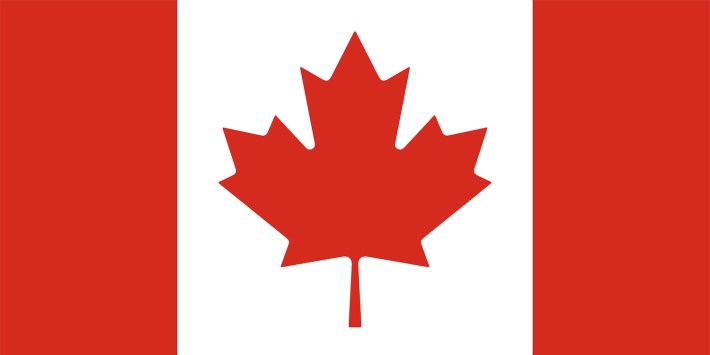
A flag blocked out into three vertical sections is the most commonplace, boring flag design out there this side of all the former British colonies being forced to have the Union Jack up in the northwest corner like a bruise from a bully. Canada, then, went from the worst to the second-worst flag loadout, though they transcend the conventional wisdom here because their flag whips ass. Anytime you can incorporate a plant or an animal (or an AK-47) into a flag, it will be all the better for it. The maple leaf is pleasantly shaped, defiant in its simplicity, and welcoming despite the red color scheme. Great flag.
Good Anthem Or Bad Anthem?
Not even the cooler bilingual version can raise this anthem out of the turbo-butt-tier. It sucks!
Notable Moment In World Cup History
The 1986 World Cup was notable for being the final tournament for many Brazilian legends, including Zico, Socrates, and Falcao. They bowed out in the quarterfinals to Michel Platini's France, in an epic game that ended 1–1 and went France's way in penalties. It was a real classic of a match.
France beat Canada 1–0 in the group stage.
How Can They Win The World Cup?
This World Cup is taking place in winter. You know where winter is a huge deal? You know which country is famous for being all the way up north, for being full of glaciers, and for having all that permafrost (spoilers in previous paragraph)? You know who loves that cold shit? Canada! All the other nations are unable to hang and compete once the calendar switches to December and it starts snowing in Qatar (global warming or something?), clearing the way for Canada to cruise.
